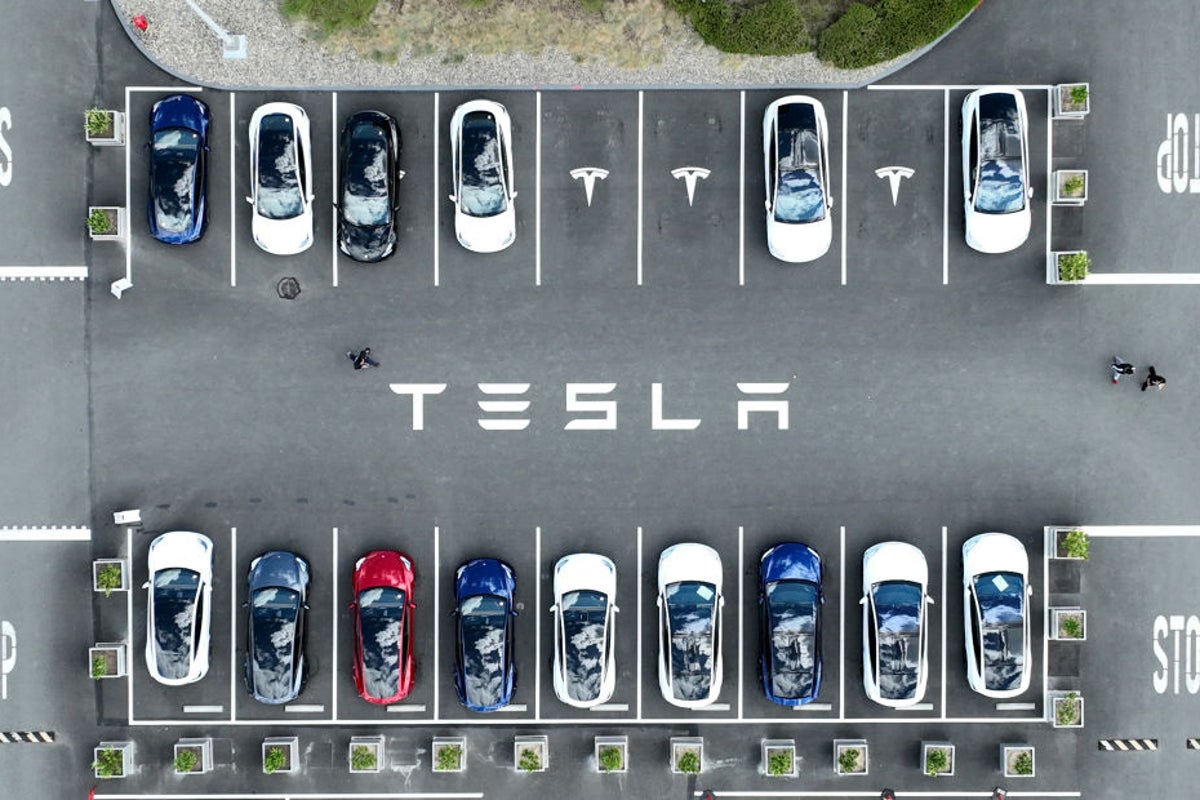
The sale of Tesla cars could soon be banned in California after regulators argued that Elon Musk’s electric car company had misled customers over their self-driving capabilities.
The state’s Department of Motor Vehicles (DMV) claims that Tesla’s promotion of its autonomous features do not match the cars’ abilities, calling on lawmakers to block the firm’s ability to sell vehicles for at least 30 days.
A lawyer representing the DMV told a court in Oakland this week that Tesla’s marketing materials for Autopilot and Full-Self Driving features “imply that its cars operate autonomously, which they do not”.
Even the names Autopilot and Full Self-Driving are “misleading” and “contradictory”, according to DMV representative Melanie Rosario.
Ms Rosario told the court that the DMV had received complaints from Tesla owners about the features, according to The Washington Post.
A state law introduced in 2023 prevents automakers from “deceptively naming or marketing” features that enable semi-autonomous driving.
Tesla lawyers claimed in their opening statement to the court that it is “impossible for a reasonable consumer to be misled” by the features, while the company’s website states that the features “require active driver supervision”.
A separate court case in Florida this week has seen a Tesla driver give testimony about a fatal accident in 2019 that he claims occurred when the vehicle’s Autopilot feature failed to detect an impending crash.
It is one of dozens of incidents involving Tesla Autopilot and Full Self-Driving, according to records from the US National Highway Traffic Safety Administration (NHTSA).
During a recent investor call following Tesla’s latest quarterly earnings, Mr Musk suggested that his company is planning a massive roll-out of its self-driving technology through driverless Robotaxis.
The self-driving taxis have so far only seen a limited launch in Austin, Texas, and market analysts are skeptical that Tesla will be able to deliver on Mr Musk’s pledge.
“During the investor call, Elon Musk... went so far as to suggest the company ‘could’ address half the US population by the end of 2025, ‘subject to regulatory approvals’,” Paul Miller, an analyst at the market research firm Forrester, told The Independent.
“That caveat is an important one, as regulatory approvals take time and there is no evidence that these formal applications to the separate State regulatory processes have begun.”
Elon Musk’s Tesla is the least trusted EV brand in America
Elon Musk may not be the president, but he still has cards to play against Trump
Elon Musk wants nationwide network of Tesla diners to charge your EV while you eat
Musk’s AI company is testing animated anime girl and vulgar panda ‘companions’
Major phone networks just stopped working
Can you leave chargers plugged in all the time? An expert explains







